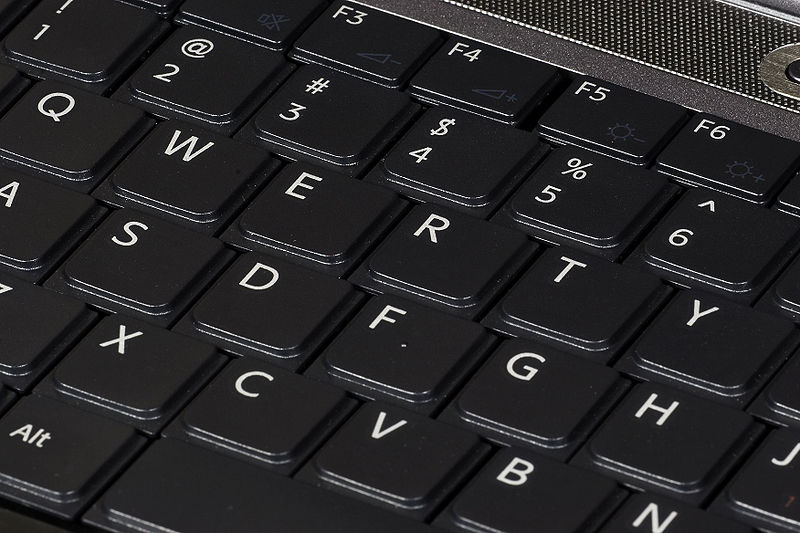How you type a word could change the way you emotionally respond to it, and words typed with mainly the right hand seem to make people happier. In fact, the layout of letters on a keyboard may even be shaping the way we use language.
The qwerty keyboard, named after the first 6 letters on the first row, was invented in 1868, and designed to keep commonly used letters apart so as to avoid the clashing and jamming that was possible with mechanical typewriters. Although we no longer rely on the same mechanical processes to type, the keyboard layout has remained the same and is now ubiquitous.
 Writing in the journal Psychonomic Bulletin & Review, Kyle Jasmin & Daniel Casasanto devised a set of experiments to test people's emotional response to certain words. Previous research has shown the performing motor actions, such as typing, in a fluid way leads to positive feelings, so if typing is more fluent with one hand than the other, it could lead to a bias in emotion towards words typed with that hand.
Writing in the journal Psychonomic Bulletin & Review, Kyle Jasmin & Daniel Casasanto devised a set of experiments to test people's emotional response to certain words. Previous research has shown the performing motor actions, such as typing, in a fluid way leads to positive feelings, so if typing is more fluent with one hand than the other, it could lead to a bias in emotion towards words typed with that hand.
To test this, volunteers were asked to rate how positive or negative they feel about a sample of around 150 words. The experiment was done in three languages - English, Spanish and Dutch, with native speakers for each language, and a second test included newer words and internet acronyms such as LOL.
The results showed that words with more letters from the right hand side of a qwerty keyboard produced a significantly more positive emotional response - regardless of language and the volunteer's handedness. Furthermore, the effect was even more pronounced in modern acronyms and words created since the invention of the qwerty keyboard.
To further test this idea, Jasmin and Casasanto wanted to know if keyboard bias would allow them to predict how positive people would find made up words, known as pseudowords, which have no inherent meaning that may alter emotional response. Again, words with a right-hand bias were deemed to be significantly more pleasing.
The authors conclude that there truly is a bias towards feeling good about words typed with the right hand, and argue that this could be because the layout of the qwerty keyboard provides the right hand with an easier job. They also suggest that this could have an impact on marketing, saying:"People responsible for naming new products, brands, and companies might do well to consider the potential advantages of consulting their keyboards and choosing the "right" name."










Comments
Add a comment